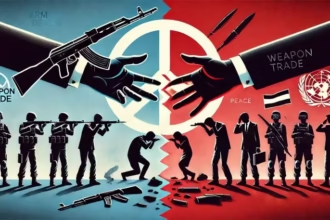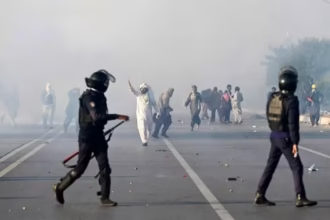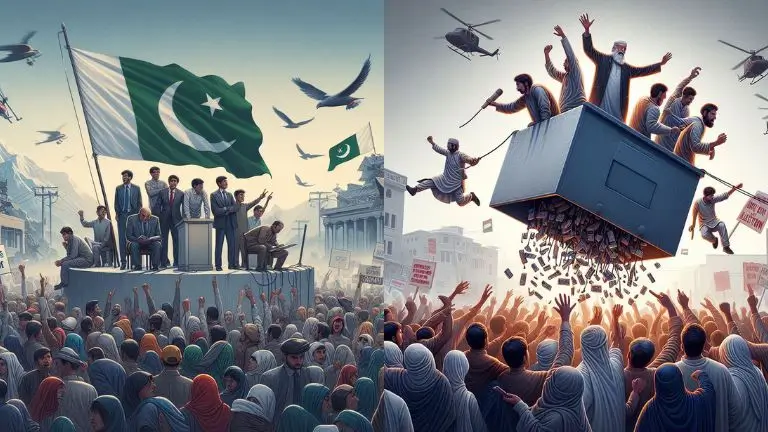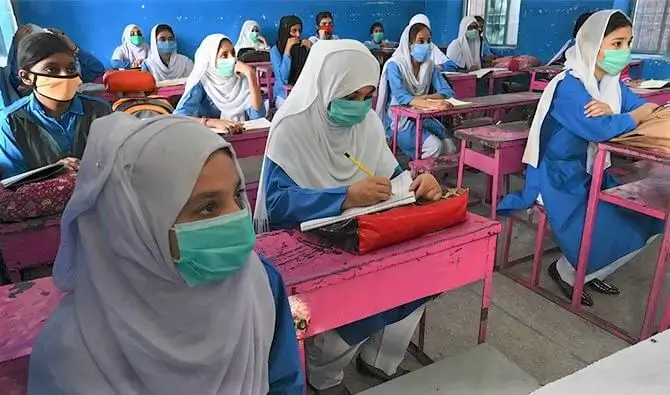Ever since its conception, Pakistan has been subjected to varying developmental policies, and efforts have been made to rejuvenate it into a thriving nation. The inception of Pakistan itself was a byproduct of the failed assimilation of western policies, laws, and systems into the sub-continent. Regardless of how compact they may seem, Pakistan’s developmental policies have always failed to deliver because the approach is alien to the native land. The incorporation of western ideals and systems has been a major factor contributing to a developmental stalemate.
One key component of failure has been understanding the premise that developmental policies should adhere to and work upon. Development itself has become a notion of discourse and has been narrowed down to a very specific sphere, not only limiting the scope in which it is measured but also keeping the context and metrics purely westernized. Orientalists have argued that development has functioned as a means of production and management in third-world countries through systematic elaboration in the fields of knowledge and institutions. As per the set standards of the west, we equate ourselves to them and believe we are underdeveloped due to the belief that western advancements in many spheres of knowledge are far superior to our own, completely disregarding our ingenious practices and needs. It is important to understand that the criteria set forth are subjective to western notions; development, as per their terms, is nothing but a tool to control our management; thus, as it defies the needs of the land itself, it contributes to a stalemate. A major factor that many people fail to acknowledge is our negligence towards academia.
There is a lack of literature from Pakistan that addresses development policies, the need for change, or policies that align with the realities of the country.
There is almost no literature that originates from Pakistan that addresses the development policies, the need for change in them, or the idea of concrete policies that align with the realities of the country. This is the case for most developing and underdeveloped nations. There are very few native articles that seek to explain the struggles of a nation, but rather, a western perspective and narrative is dominant, suppressing any native originality. Dahdouh-Guebas et al analyzed published articles and found that 70% of the papers did not have co-authors, indicating that this is an unfair practice when compiling data on these nations.
Additionally, the questionnaires are also biased in order to represent data in a manipulated manner. Thousands of articles are published annually on the plight of developing and underdeveloped nations, but the authors are primarily from western countries, giving them the opportunity to present things in a more subjective and westernized way. Based on the research conducted by Dahdouh, it is clear that not only are third-world nations deprived of the right to represent their own struggles as co-authors, but the data obtained through research is skewed to align with the perception of the author, leading to flawed perceptions. Even those in public office often fail to incorporate culture into policies, regardless of whether literature exists or not.
A crucial aspect that has always been neglected is the incorporation of culture into policies. Pakistan is a culturally rich and strong country, and many people still hold on to their traditions and beliefs strongly. Our culture has always been a defining element in every aspect of our lives, unlike the west which has slowly abandoned its roots and adopted a generic lifestyle for all. Verhelst has critiqued the western approach by labeling it as materialistic and industrialistic in nature, while the approaches in third-world countries are more sober and focused on mutual aid. The western world functions more on the basis of liberal economics and capitalism, where individuality is the key factor that drives success, while in third-world countries, the concept of being is entirely different.
In the context of Pakistan, the true depiction of our cultural roots can be found in rural areas where individuals believe in living and working together in a mutual aid-oriented environment. The inclusion of western ideals disrupted this flow and brought about the current discourse we see today, where the common person is confused about which path to follow because the policies have been structured to suit western ideals and neglect native cultural values. While policymakers cannot be entirely blamed, there is certainly external involvement.
Rural areas in Pakistan often offer a more accurate depiction of cultural roots and values, including a focus on mutual aid rather than individual success.
There are many international institutions that seek to guide third-world countries on the different policies they can consider in order to become more developed. These institutions are often presented as a holy grail, and deviating from their policies can be seen as a sign that a country is not living up to the ideals set forth by both the international community and its own nation. Examples of these institutions include the United Nations and the World Bank. According to Hunter, the position of Chief Economist at the World Bank is a crucial role, as they advise the entire world on the policies that should be adopted in order to reduce poverty or avoid economic downturns.
This position is traditionally reserved for someone from the US, which shows that a very influential international institution is controlled by another nation, specifically the western superpower. The policies put forth by these institutions are not necessarily based on the needs and values of the countries they are intended for, but rather are constructed in a generic manner and promote Eurocentrism. Additionally, the World Bank determines the metrics for development, which are often Eurocentric, and nations are expected to adhere to them. The level of external involvement in these countries is often so systematic that it can go unnoticed unless one looks closely at it. It is important to note that having control over a country’s economy often allows for significant involvement in other areas as well.
Pakistan has been facing an economic crisis since its inception. Economic well-being is an important factor in the development of a nation, as it strengthens institutions and ensures sustainable standing in the long run. However, the colonial beliefs and knowledge embedded in international institutions have only contributed to economic instability in Pakistan. Blaney and Innayatullah argue that there is a tendency to universalize capitalism and class by ignoring the historically entangled structures of Eurocentric culture, including racism and sexism, in international political economy. Capitalism has played a significant role in the advancement of Eurocentric systems, both politically, economically, and socially. In the case of Pakistan, the country originally had a strong agricultural economy, but as it adopted more Eurocentric economic models, its development shifted towards more structural and institutional approaches, such as investing in concrete infrastructure rather than building on its existing agricultural base.
The adoption of Eurocentric ideals also changed Pakistan’s priorities, as it worked towards obtaining more loans in an attempt to keep up with the western world, which had a different economic foundation. Neglecting its own roots and origins has been a major hindrance in the developmental challenges it faces today.
The author is a Public Administration student.








